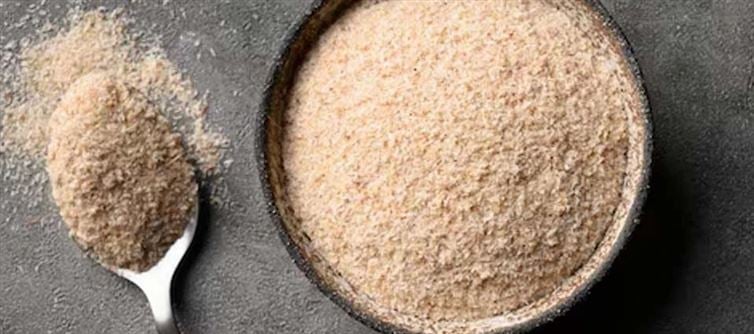
Soluble fiber, which makes up the majority of psyllium husk, absorbs water and gels in the digestive tract. It is quite helpful for controlling cholesterol levels, promoting gut health, and regulating bowel motions because of this special quality. It is frequently used as a natural supplement for a variety of health issues and comes in powder, pill, and whole husk forms.
How Does Psyllium Husk Help In Lowering Cholesterol?
In the digestive tract, psyllium husk can bind to cholesterol and assist the body in eliminating it. According to a 2017 study, this mechanism effectively lowers Low-Density Lipoprotein levels (bad cholesterol) by forcing the liver to generate more bile acids by using existing cholesterol.
Additionally, psyllium husk can aid in raising the body's HDL levels, or good cholesterol. The chance of getting cardiovascular problems so drops.
The fiber and anti-inflammatory qualities of psyllium husk can aid in lowering oxidative stress and chronic inflammation in your body.
Because metabolic diseases like diabetes are frequently linked to elevated cholesterol, psyllium husk may improve insulin sensitivity and blood sugar regulation.
When taken for at least three weeks, a daily intake of about 10 grams of psyllium husk reduced harmful LDL cholesterol by 13 mg/dL, according to a study published in Harvard health Publishing that analyzed 28 trials involving people with both normal and elevated cholesterol levels.
Other health Benefits of Psyllium Husk
• By giving stool more volume, it can assist control bowel motions and avoid constipation.
• Psyllium husk fiber promotes fullness and lowers total caloric intake.
• Blood glucose levels don't surge since sugar is absorbed slowly.
• It also promotes the development of good gut bacteria as a prebiotic.
How to Add Psyllium Husk to Your Diet
Mix with Water or Juice: Drink a glass of water or juice right away after adding one to two tablespoons of psyllium husk powder.
Blend into Smoothies: For an added fiber boost, include psyllium husk into your preferred smoothie.
Sprinkle over yogurt or oatmeal for a quick and easy method to boost your intake of fiber without sacrificing flavor.
Use in Baking: To increase the nutritious content of homemade bread, muffins, or pancakes, add psyllium husk.
Things You Should Remember
To prevent any negative effects, you should pay attention to the dosage when taking psyllium husk. Typically, 5–10g of psyllium taken with meals at least once a day is safe. Steer clear of overindulging and stay hydrated all day. Starting with 5g three times a day with a glass of water, you can progressively increase the dosage. Before including it in your diet, it is crucial to speak with your healthcare provider, particularly if you are coping with a medical condition.




 click and follow Indiaherald WhatsApp channel
click and follow Indiaherald WhatsApp channel